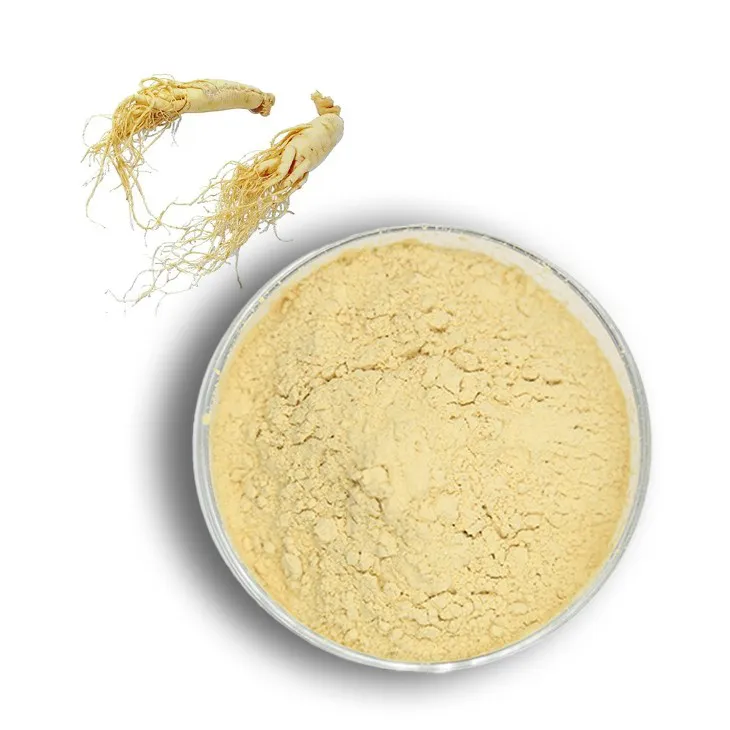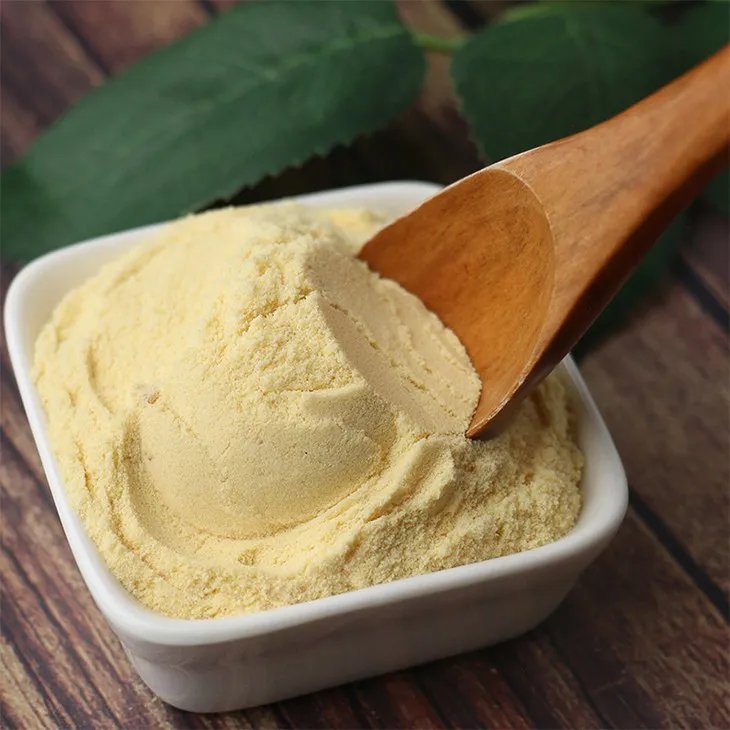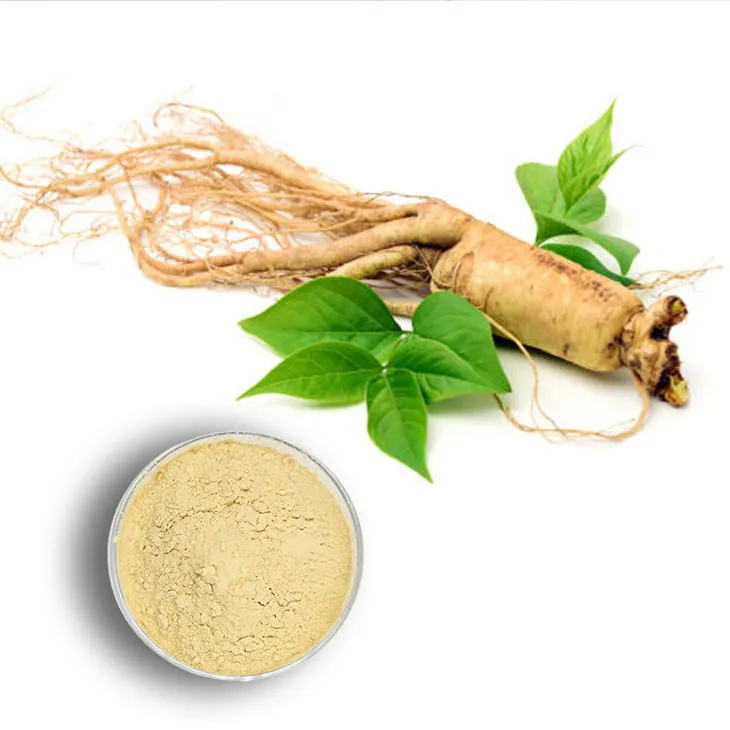- 0086-571-85302990
- sales@greenskybio.com
Use ginseng root extract to prevent diseases and enhance immunity.
2024-11-12

1. Introduction to Ginseng Root Extract
Ginseng has been a highly regarded herb in traditional medicine for centuries, especially in Asian cultures. Ginseng Root Extract is derived from the root of the ginseng plant, which contains a rich variety of bioactive compounds. These compounds are responsible for the numerous health benefits associated with ginseng.
The main types of ginseng include Panax ginseng (Asian ginseng), Panax quinquefolius (American ginseng), and Eleutherococcus senticosus (Siberian ginseng). Each type has its own unique properties, but they all share certain common health - promoting features. The bioactive components in Ginseng Root Extract include ginsenosides, polysaccharides, flavonoids, and phenolic compounds.

2. The Role of Ginseng Root Extract in Preventing Diseases
2.1 Cardiovascular Diseases
Ginseng root extract has shown potential in preventing cardiovascular diseases. Ginsenosides, one of the key components, can help regulate blood pressure. They may act on the blood vessels, causing them to relax and thus reducing the pressure on the arterial walls. This effect is beneficial for individuals with hypertension, a major risk factor for cardiovascular problems.
Moreover, ginseng root extract can also lower cholesterol levels. It may interfere with the absorption or synthesis of cholesterol in the body. High cholesterol is often associated with the formation of atherosclerotic plaques in the arteries, which can lead to heart attacks and strokes. By reducing cholesterol, ginseng root extract helps in maintaining the health of the cardiovascular system.
2.2 Diabetes
Research has indicated that ginseng root extract may play a role in diabetes prevention. It can improve insulin sensitivity in the body. Insulin is a hormone that regulates blood sugar levels. In individuals with insulin resistance, the body's cells do not respond properly to insulin, leading to elevated blood sugar levels. Ginseng root extract helps the cells to become more responsive to insulin, thus assisting in blood sugar control.
Furthermore, ginseng root extract may also have an impact on pancreatic beta - cells, which are responsible for producing insulin. It may protect these cells from damage and promote their proper function. This is crucial for preventing the onset of type 2 diabetes, which is often related to a combination of genetic and lifestyle factors.
2.3 Cancer Prevention
Although ginseng root extract cannot be considered a sole treatment for cancer, it has shown some promising properties in cancer prevention. Some of the bioactive compounds in ginseng, such as ginsenosides and polysaccharides, have antioxidant and anti - inflammatory effects.
Antioxidants help to neutralize free radicals in the body. Free radicals are highly reactive molecules that can damage DNA and other cellular components, potentially leading to cancer development. By scavenging free radicals, ginseng root extract reduces the risk of DNA mutations that can initiate cancer. Anti - inflammatory properties are also important, as chronic inflammation is associated with the development and progression of many types of cancer.

3. Enhancing the Immune System with Ginseng Root Extract
The immune system is the body's defense mechanism against various pathogens, such as bacteria, viruses, and fungi. Ginseng root extract can enhance the immune system through multiple pathways.
3.1 Stimulating Immune Cells
Ginseng root extract has been found to stimulate the activity of immune cells. For example, it can enhance the function of macrophages, which are large white blood cells that engulf and digest foreign invaders. Macrophages play a crucial role in the innate immune response. By increasing their activity, ginseng root extract helps the body to more effectively detect and eliminate pathogens at an early stage.
It also has an impact on lymphocytes, which are part of the adaptive immune system. Lymphocytes include T - cells and B - cells. Ginseng root extract can promote the proliferation and activation of these cells, enabling them to better recognize and respond to specific antigens. This enhances the body's ability to mount a targeted immune response against infections.
3.2 Modulating the Immune Response
Another important aspect of ginseng root extract's effect on the immune system is its ability to modulate the immune response. In some cases, the immune system can overreact, leading to autoimmune diseases where the body attacks its own tissues. Ginseng root extract can help regulate this overactive immune response.
On the other hand, in situations where the immune system is weakened, such as during stress or illness recovery, ginseng root extract can boost the immune system to an appropriate level. It helps to balance the immune response, ensuring that it is neither too strong nor too weak.

4. How to Use Ginseng Root Extract
Ginseng root extract is available in various forms, including capsules, tablets, tinctures, and powders. Here are some guidelines on how to use it:
4.1 Dosage
The appropriate dosage of ginseng root extract depends on several factors, such as the type of ginseng, the form of the extract, and the individual's health condition. In general, for preventive purposes, a lower dosage may be sufficient. However, it is always advisable to consult a healthcare professional before starting any new supplement regimen.
For example, a typical daily dosage of Panax ginseng extract in capsule form may range from 100 - 500 mg. American ginseng extract may have a slightly different dosage range. It is important not to exceed the recommended dosage, as high doses of ginseng may cause side effects such as insomnia, nervousness, or digestive problems.
4.2 Duration of Use
The duration of using ginseng root extract also needs to be considered. It is not recommended to use it continuously for long periods without breaks. A cycle of use, such as using it for 2 - 3 months and then taking a break for a few weeks, may be more appropriate. This helps to prevent the body from developing tolerance to the extract and reduces the risk of potential side effects.
4.3 Combining with Other Supplements or Medications
If you are taking other supplements or medications, it is crucial to check for potential interactions with ginseng root extract. For instance, ginseng may interact with blood - thinning medications, increasing the risk of bleeding. It may also interact with certain antidepressants or stimulants.
Before combining ginseng root extract with other substances, it is necessary to consult a doctor or a pharmacist to ensure safety and effectiveness.

5. Precautions and Side Effects
While ginseng root extract has many potential health benefits, it is not without precautions and possible side effects.
5.1 Allergic Reactions
Some individuals may be allergic to ginseng. Allergic reactions can range from mild symptoms such as skin rashes and itching to more severe reactions like difficulty breathing or anaphylaxis. If you have a known allergy to plants in the Araliaceae family (to which ginseng belongs), you should avoid using ginseng root extract.
5.2 Hormonal Effects
Ginseng root extract may have hormonal effects. In some cases, it can affect the levels of hormones such as estrogen or testosterone. This may be of particular concern for individuals with hormonal imbalances or those who are taking hormonal medications. It is important to monitor for any hormonal changes when using ginseng root extract.
5.3 Other Side Effects
As mentioned earlier, high doses of ginseng root extract can lead to side effects such as insomnia, nervousness, and digestive problems. Additionally, it may cause headaches or changes in blood pressure. If you experience any of these side effects while using ginseng root extract, it is advisable to reduce the dosage or discontinue use and consult a healthcare provider.

6. Conclusion
Ginseng root extract, with its rich array of bioactive compounds, offers a natural approach for preventing diseases and enhancing the immune system. It has shown potential in preventing cardiovascular diseases, diabetes, and cancer, among others, through its various physiological effects.
However, it is important to use ginseng root extract with caution, taking into account factors such as dosage, duration of use, and potential interactions. By following proper guidelines and consulting healthcare professionals when necessary, individuals can potentially benefit from the health - promoting properties of ginseng root extract while minimizing the risks associated with its use.
FAQ:
What are the main bioactive compounds in ginseng root extract?
Ginseng root extract contains several important bioactive compounds. Ginsenosides are the most well - known ones. These are triterpene saponins which are believed to contribute significantly to the health - promoting effects of ginseng. Additionally, it also contains polysaccharides which may play a role in immune modulation, and flavonoids which have antioxidant properties.
How does ginseng root extract prevent diseases?
Ginseng root extract may prevent diseases through multiple mechanisms. Its antioxidant properties help to combat oxidative stress, which is associated with many chronic diseases. The bioactive compounds can also regulate the immune system, making it more effective at fighting off pathogens. For example, ginsenosides may enhance the activity of immune cells such as macrophages and lymphocytes. Moreover, ginseng has been shown to have anti - inflammatory effects, which can reduce the risk of developing inflammatory - related diseases.
Can ginseng root extract enhance the immune system?
Yes, it can. The polysaccharides in ginseng root extract are thought to stimulate the immune system. They can increase the production of immune cells like white blood cells. Ginsenosides also play a role in modulating the immune response, making it more balanced and efficient. By enhancing the function of the immune system, ginseng root extract can help the body better defend against infections and diseases.
Are there any side effects of using ginseng root extract?
When used appropriately, ginseng root extract is generally safe for most people. However, some individuals may experience side effects such as insomnia, nervousness, or increased blood pressure. High - dose or long - term use may also lead to more serious adverse effects. Pregnant and breastfeeding women should be cautious when using ginseng as it may affect the fetus or infant. People with certain medical conditions, like bleeding disorders or diabetes, should consult a healthcare provider before using ginseng root extract.
How should ginseng root extract be taken for disease prevention and immunity enhancement?
The appropriate way to take ginseng root extract depends on various factors such as the form of the extract (e.g., powder, capsule, tincture). In general, it is important to follow the recommended dosage on the product label. It can be taken orally, usually with water. Some people may choose to take it in the morning to avoid potential insomnia - causing effects. However, it is always advisable to consult a healthcare professional for personalized advice, especially for those with underlying health conditions.
Related literature
- The Bioactive Compounds and Health Benefits of Ginseng Root Extract"
- "Ginseng Root Extract: A Natural Immune Booster"
- "Preventive Effects of Ginseng Root Extract on Chronic Diseases"
- ▶ Hesperidin
- ▶ citrus bioflavonoids
- ▶ plant extract
- ▶ lycopene
- ▶ Diosmin
- ▶ Grape seed extract
- ▶ Sea buckthorn Juice Powder
- ▶ Beetroot powder
- ▶ Hops Extract
- ▶ Artichoke Extract
- ▶ Reishi mushroom extract
- ▶ Astaxanthin
- ▶ Green Tea Extract
- ▶ Curcumin Extract
- ▶ Horse Chestnut Extract
- ▶ Other Problems
- ▶ Boswellia Serrata Extract
- ▶ Resveratrol Extract
- ▶ Marigold Extract
- ▶ Grape Leaf Extract
- ▶ blog3
-
Cranberry Plants and Skin - care Products.
2024-11-12
-
Black Pepper Extract
2024-11-12
-
Bayberry Extract
2024-11-12
-
Polygonum Cuspidatum Extract
2024-11-12
-
Diosmin
2024-11-12
-
Boswellia Serrata Extract
2024-11-12
-
Rose Hip Extract
2024-11-12
-
Gynostemma pentaphyllum extract
2024-11-12
-
Beta Carotene
2024-11-12
-
Nettle leaf extract
2024-11-12
-
Acerola Extract
2024-11-12





















